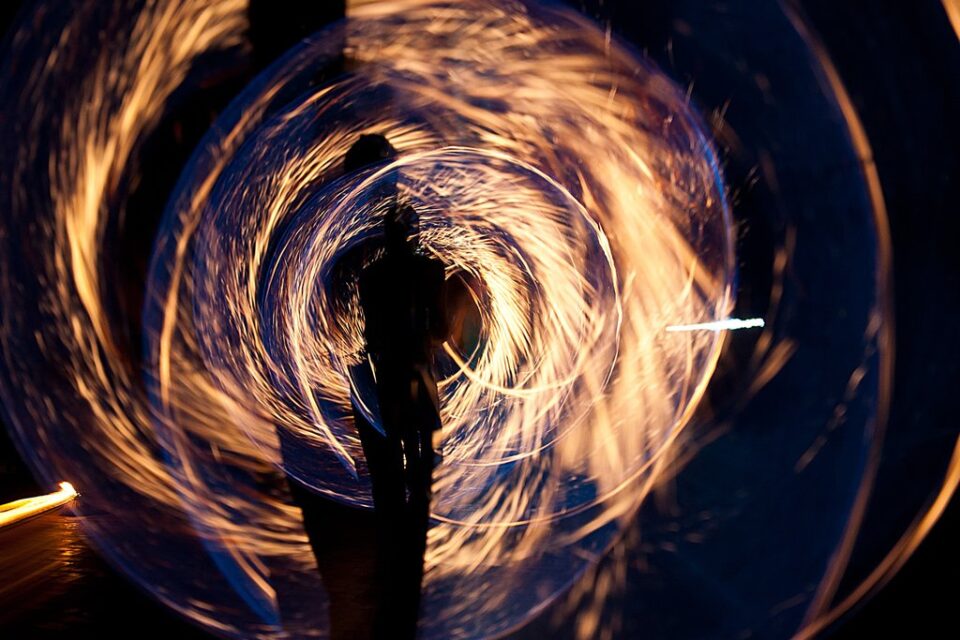One of the benefits of adapting an established story is that you don’t have to focus on that story. You can examine any detail or character you want, so long as they somehow connect to the original material. There are multiple contemporary examples of this, like the 2018 Ophelia film, and the 2019 musical & Juliet, both of which adjust a Shakespeare play to challenge our expectations of how that narrative plays out. However, nothing compares to the greatest Shakespeare reimagining: Rosencrantz and Guildenstern are Dead.
Based on Tom Stoppard’s 1966 play of the same name, Rosencrantz and Guildenstern are Dead retells Shakespeare’s Hamlet from the perspective of his two best friends. Even if you are familiar with the play, you have probably forgotten these characters. They are not really important figures, and they end up dying after Hamlet discovers they are carrying a letter calling for his death, one written by his Uncle.
Their unimportance is one of the reasons the film and play are so effective, as these two characters sort of just watch the events of Hamlet and then comment on them. They are an audience, just as we are.
By putting Shakespeare in the background, and focusing on minor characters, the film takes a specific stance on the importance of classic texts. The film implies that we have heard too much from Hamlet, and now we need to take a step back. It is like our contemporary worship of Shakespeare has impacted the events of Hamlet, and even the characters have fallen into a never-ending cycle of revenge and death. But, in our obsession with Hamlet, we forgot about Rosencrantz and Guildenstern, and now they are the only ones who seem vaguely aware that something strange is going on with the story they are involved with, but they can’t really do anything about it.
Guildenstern even suggests as much by claiming that every event becomes increasingly real as more people witness it. That would explain why Rosencrantz and Guildenstern are so unreal, or self-aware, as people do not pay attention to them while watching Hamlet. Their unimportant status gives them the freedom to speculate about their world and its predetermined events.
The film’s comedy stems from bizarre situations and moments where things unrealistically match up, and where foreshadowing is less a shadow and more a literal smack in the head. Even the title of the play and film tells you exactly what is going to happen. Rosencrantz and Guildenstern will die, but more importantly, they are already dead. Even before the film begins, their fates have already been set in motion by the mere existence of Hamlet. This suggests that they are sort of undead in the film, living between deaths in a narrative cycle. Just as Hamlet is one of the most frequently performed Shakespeare plays, Rosencrantz and Guildenstern have died multiple times. While they can’t do anything to stop this death, this gives them the opportunity to speculate on what it means to die, and other philosophical questions.
For example, in one of my favourite scenes, Rosencrantz and Guildenstern play a game of questions, where they compete to see who can pose questions without giving any statements. They set it up as if it were a game of tennis, but instead of a ball, they use words. For most of the scene, the two question why they are playing the game, how it works, and what is going on. The game makes little sense, and the players seem to be making up the rules as they go. However, this entertaining scene also plays into the film’s broader fixation with the rules of reality and determinism. Neither Rosencrantz nor Guildenstern have any answers, but they at least have questions. That perfectly summarizes their characters, as they know that something is happening around them, and that they are in someway involved, but they have no idea why or how. The only thing they have are questions, and unanswerable philosophical conundrums.
Another example of this self-aware observation is the heads scene, where Rosencrantz tosses a coin and it lands on heads 92 times in a row. We never find out why this is happening, and neither do Rosencrantz and Guildenstern, but they still conclude that something is wrong with reality. They do so by noticing something which no one else seems aware of, specifically through a game. The symbolism behind this coin toss, the King’s head being the one constant in their game, is totally lost on Rosencrantz and Guildenstern, and so they move on to different questions and games.
The absurd nature of the film thus lies in its undetermined spaces and people, the only unknown bits in the pre-established and recognizable story that is Hamlet. Asking questions and about the nature of their reality is thus the only way Rosencrantz and Guildenstern can momentarily sidetrack the story they are unwillingly involved with, one which will eventually kill them. By pausing to ask questions, these figures establish the unknown within the known, and thus change our perception of Hamlet.
